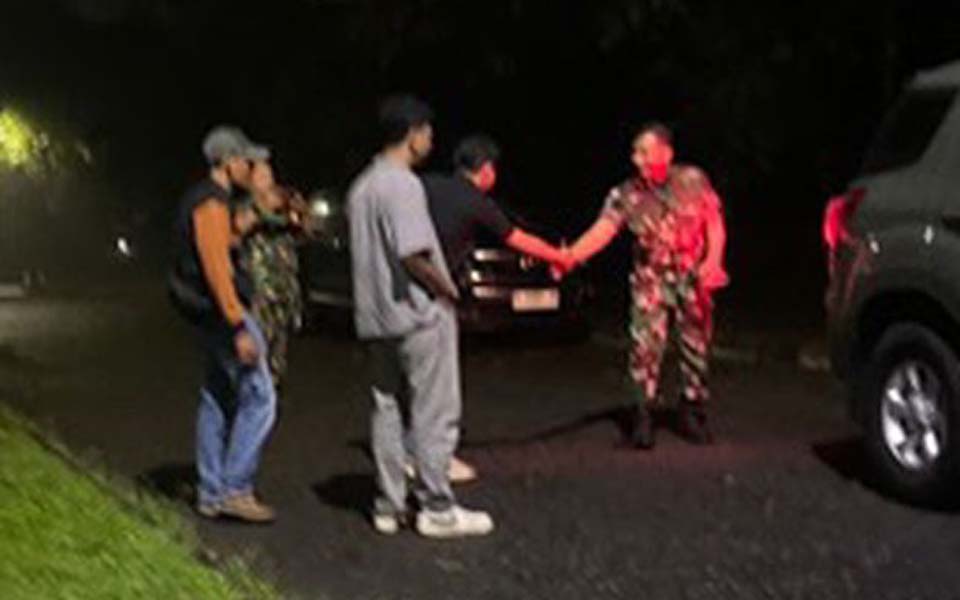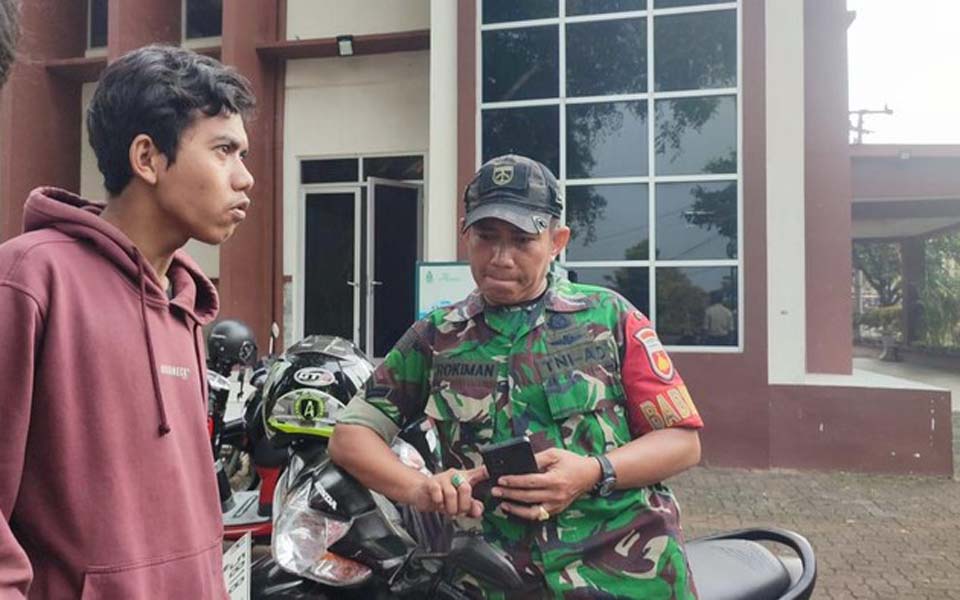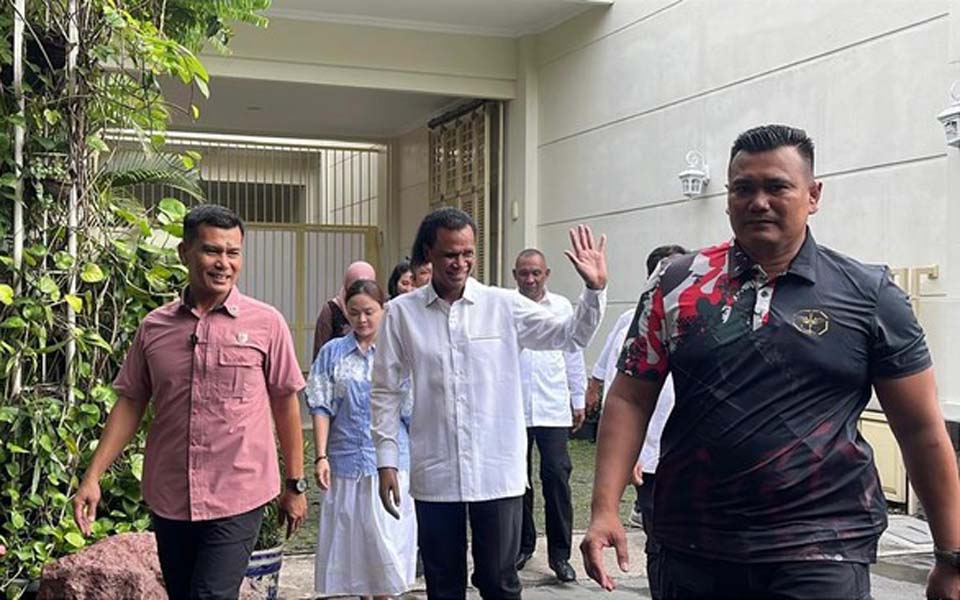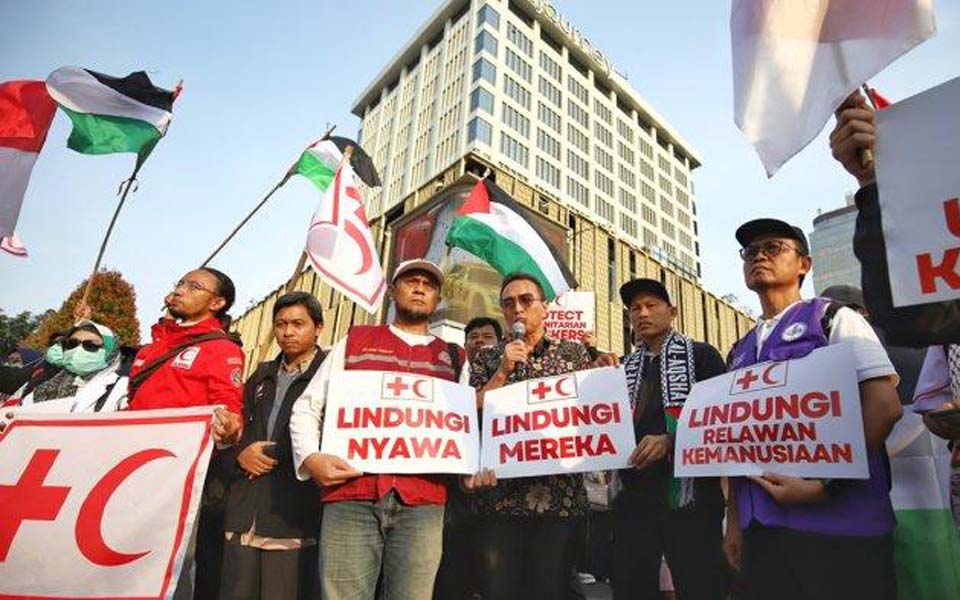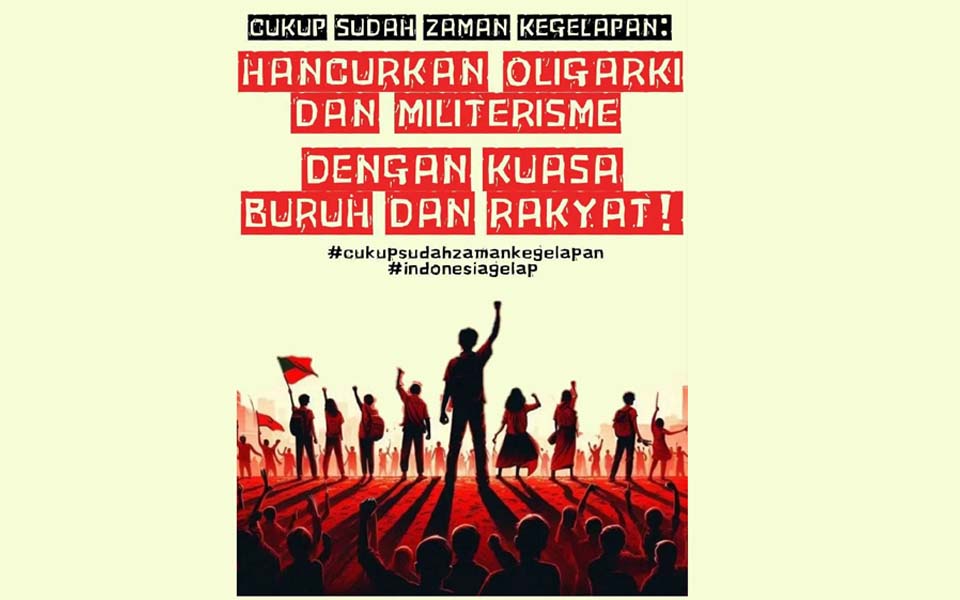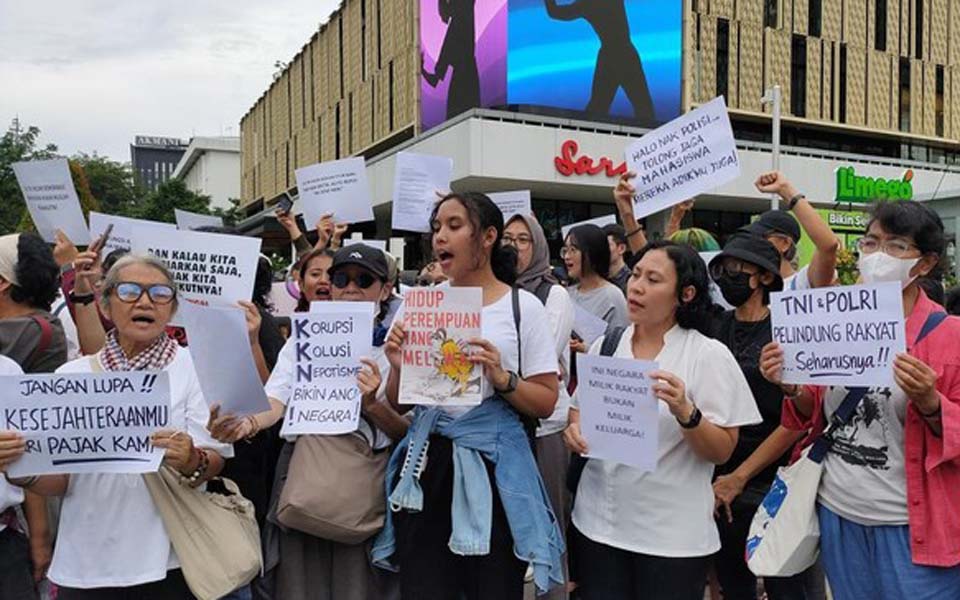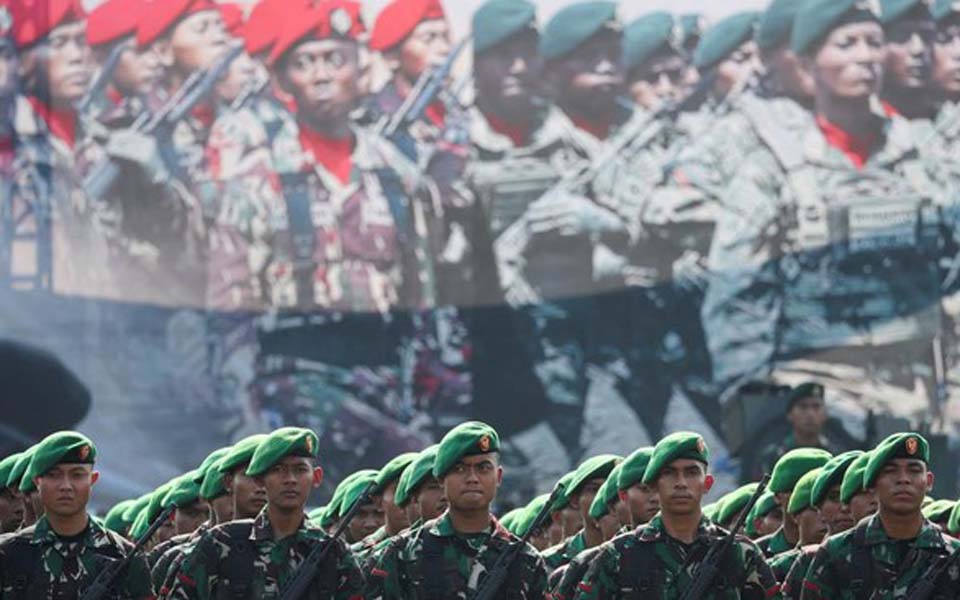On Friday the 21st of June 2019, the Ministry of Education and Culture resolved to work collaboratively with the Indonesian National Armed Forces in disseminating material to new students during school orientation week.
These guiding activities were aimed at all levels of education including primary, intermediate and secondary high school, or their equivalent. The declaration was made by the Minister for Education and Culture, Muhadjir Effendi. Meanwhile, the commander of the National Armed Forces explained that the material being taught is based around the state ideology of Pancasila, the 1945 Constitution (UUD 1945), the Unitary State of the Republic of Indonesia (NKRI) and unity in diversity (Bhinneka Tunggal Ika). Hadi also mentioned that these efforts were driven by a desire to prepare the character of students for when they confront the “bonus demography” phenomenon by the year 2045.
This policy applies to all schools, albeit whether they are in peripheral, underdeveloped or advanced regions (3T). Effendi hopes that the military will be able to shape the character of students by reinforcing the amount of basic materials related to nationalism, the defence of Indonesian territory and a love for Indonesia. The Ministry of Education and Culture’s Twitter account posted that, “flag-raising ceremonies and parade drills are the most basic ways of fostering nationalism that will be carried out”.
In the past three years alone, various university campuses have also invited military officers to lead public educational events or “OSPEK”. The content of these events is always linked to unity (persatuan) and pluralism (kemajemukan). Outside the world of education, workers at state-owned enterprises (BUMN), as well other companies, are often given semi-military drills by companies. Indeed, this is because they consider there to be a correlation between the military and discipline, which can then be key to success in other areas. Even in football is this responsibility handed over to the military. So, is military pedagogy truly so great? What is it like in practice?
In “Militarism and Anti-Militarism”, Karl Liebknecht says that, “in order to achieve its aims, (militarism) must convert the army into an easy to use tool that is both flexible and effective... because the army is not a machine, rather it actually consists of humans (which thereby constitute a single living mechanism); there must be the creation of a “correct mentality” (semangat yang benar). This mentality is one that is always ready to receive the order to attack all enemies. To produce such a mentality requires perfect levels of ignorance, or at the very least the lowest level of intellect, so that the masses can be herded like a flock of livestock and directed wherever is in the interests of “social order”.
The spirit demanded by militarism, in relation to its function in defeating enemies from other countries, is chauvinistic, obstinate, narrow-minded and arrogant. In relation to its function of overcoming domestic enemies, militarism is ignorant and breeds hatred for progress from any quarter that threatens the power of the dominant class.
For that to happen, one’s character must be shaped through the use of moral or psychological means as well as through persuasion and force. Here the “bait and caning” principle (prinsip umpan dan cambukan) is applied. The system used involves division according either to age, or a system of seniority and ranking. As well as that, they are separated from their environment, isolated and caged up in barracks.
Ambition and pride is encouraged; military uniform is considered a respected form of dress; military decorations are glorified as being of particular exceptionality while military rank resonates with the utmost importance and respect. This is along with the “special rights” that are attached. The lower the level of intellect and social state of a soldier, the stronger are the effects inflicted by the methods listed above.
In addition, the development of this way of thinking is addressed through military schools which provide a distorted and childish view of the world devised specifically for the purposes of militarism. To achieve an obedient and easily controlled character requires heavy training and military discipline. They seek to tame humans like animals. Recruits are dragged, dazed, praised, given food, pressured, locked up, disciplined and beaten. For military discipline, it is extremely important that people work together within one large group which eliminates individual initiative in different circumstances. Individuals are arranged into a single whole until it is no longer possible to act freely.
The military pedagogy described by Karl Liebknecht mirrors torture methods used by the CIA during the Second World War. This method of torture was created so that prisoners would be forced to succumb to the will of their interrogator and provide them with information. It was done by firstly cutting off all contact with the outside world (isolation) and then by bombarding the body with simulations (beatings, electrocution, yelling or even intense light).
In Indonesia, we have already seen how military pedagogy works in practice. The Indonesian military were dominated by former members of the Defenders of the Motherland (PETA, a small auxiliary military force of Indonesians who became soldiers in the Japanese army) and the Royal Netherlands Indies Army (KNIL, the Dutch Colonial Army, mostly made up of Ambonese) through the elimination of elements of people’s militia units (Laskar Rakyat). Dutch colonial society introduced hazing rituals (perpeloncoan) under the name “ontgroening” during the early ethical policy era.
The School for the Education of Native Doctors (STOVIA), the Geneeskudinge Hooge School and the Technische Hooge School were all colonial era schools where hazing rituals were carried out. Seniors would yell and scream racist slurs while juniors would be forced to take on shameful attributes and carry out games aimed at humiliating Indonesian students. Fascist Japan cultivated militarism through schools. The tradition of hazing was taken up through shaving young boys heads (this was to become the origins of the word “plonco”), parade drills (latihan berbaris-baris), performing Kinrohoshi or forced labour (kerja rodi), taisho (gymnastics) and seikirei (bowing in the direction of Tokyo to honour the Emperor-God of Japan).
Since independence, the Indonesian military has thought of itself as a knight (ksatria) of domestic capital and has become an armed faction of the bourgeoisie. Consequently, their claims have been that the military must be political, that it is not a civilian tool, that civil society cannot take care of the life of either the state or nation and that the military must perform a dual function.
Suharto’s military regime rose to power upon hoaxes, persecution and crimes against humanity. Once in power, the “educated” community put their beliefs behind all of these atrocities. De-ideologisation, depoliticisation and de-organisation were applied. Militarism was glorified as the nation’s saviour from communism. In fact, the military or its components assumed roles in all aspects of shaping the Indonesian nation. Seminars were held many times to disseminate the “Generation of 45” concept (konsep Generasi 45) in which the military were highlighted as the most relevant group to lead the country due to their patriotic spirit in the struggle against colonialism.
Pancasila was used and interpreted as a tool to legitimise the power and role of the military. Pancasila Day (June 1) was cancelled and replaced with the “Sacredness of Pancasila Day” (October 1). Pancasila was also set as the sole basis for behavioral guidelines (pedoman perilaku).
The “Pancasila Moral Education” curriculum (PMP) was put into effect. “Guidelines for the Realisation and Implementation of the Pancasila” (P4) became mandatory. That curriculum single-handedly painted a picture wherein the military’s role was to maintain social order while the Indonesian people’s status was one of obedience, in which social changes were denied and seen as a disturbance, and where everybody was working together for development. This development provided cheap labour and gave companies from imperialist countries access to natural resources. Development was used as the “oil” for the corruption and collusion which enriched Suharto’s cronies and generals.
Violence is the cultural outcome of militarism. Cases of violence exist inside barracks, within educational institutions until they emerge in open society. Violence in barracks and educational institutions is considered normal as long as it does not go beyond a certain point, if it continues it is stopped. Violence is rife in public schools such as the Institute of Home Affairs Governance (IDPN) or ATKP. It is also present in other educational institutions, such as the three students killed after being persecuted during activities at the Indonesian Islam University (Diklatsar Mapala, UII). As well as these various crimes against humanity that take place in society, we also see clashes between the police and military, even clashes between security forces in nightclubs.
So, based on this, what is this character that they are trying to shape students into? What kind of society are they trying to build? One that is ignorant and manipulative? That allows hoaxes, manipulation and violence?
The Minister of Defence, Ryamizad Ryacudu has said that the Lesbian, Gay, Bisexual and Transgender (LGBT) movement is part of a proxy war being waged by a foreign country against Indonesia. As if there are no diverse sexualities in Indonesia and even homo erectus. In the standard version of history disseminated by the Military History Centre (Pusat Sejarah TNI AD), the uprising of the Indonesian Communist Party (PKI) in 1926-27 against the Dutch East Indies government is written in a way to convince people that the PKI were “by their very nature” already rebellious. Of course, for the military to rebel against the colonists, that’s not allowed. Book raids were used by the military to target books considered to disseminate communism and Marxism. However, they ended up confiscating anti-communist books like the works of Magnis Suseno. The former commander of the Indonesian armed forces, Gatot Nurmantyo, would organise screenings of the film “The Treachery of the Communist Party” (Pengkhianatan G30S-PKI) at army headquarters around the country.
Meanwhile, there have been talk shows saying that the PKI were behind screenings of the film “The Treachery of the Communist Party” being cancelled. But it was actually Yunus Husfiah, the Minister for Information during former President Habibie’s government, which put an end to the film being screened. This was done because the film was a manipulation of history. September will indeed feel lonely without accusations and hoaxes being disseminated by MayJen K, the alias of retired Major-General Kivlan Zen. Like two years ago when he said that the PKI had recruited 60 million members. Meanwhile, retired Lieutenant-General Kiki Syahnakri, at a national symposium with the theme “Protecting Pancasila from the threat of PKI revival”, said that Marxism took dialectical materialism from Aristotle who did not believe that somebody had created the universe. Therefore, Marxism is also Atheistic. Yet it was Hegel with his dialectics and Feurbach with his materialism that Marx was able to “create” Dialectical Materialism. Do not forget the wise cracks (and iron fists) of retired Lieutenant-General Edy Rahmayadi as the Governor of North Sumatra and Chairman of the Football Association of Indonesia. What right do we have to question them?
Love Indonesia and protect the homeland? What exactly does that mean? Surely those generals never “loved” the millions of people they arrested, imprisoned and butchered during the 1965 Catastrophe (Malapetaka 1965). Was it “love” they showed to the hundreds of thousands of brutalised people in Timor Leste, Aceh and Papua? Or maybe they protected labour activist Marsinah, renowned human rights defender Munir, leftist street poet Wiji Thukul and the like? Certainly not. They love people like themselves, other political elites and generals. So much is their love that whatever barbaric acts they carry out, it is always protected and defended. How many masterminds behind crimes against humanity are actually dragged in front of the Human Rights Court? These political elites and generals exploit workers, steal farmer’s land and plunder natural resources for the sake of rank, position and wealth. This is all justified with the excuse that it is the collective interest, in the interests of the state and nation. Meanwhile we, the working class, university students and high-school students are deluded into thinking that the interests we defend are the same as theirs. We are deluded by nationalism, the protection of the nation and the love of the homeland.
There cannot be the development of a rational way of thinking, let alone society, with militarism. Education must be scientific; this means a system of knowledge that demonstrates all natural processes and social life objectively. Scientificness not only provides knowledge of individual aspects of objects and the external relations between them, but also provides knowledge about the laws which organise society and the natural world. Scientific education is at odds with military pedagogy and militarism; is in contradistinction to the ignorance, hoaxes and manipulation which it produces. Scientificness is also a means through which people can be liberated from the shackles of superstition, mysticism, patronage, hoaxes, manipulation, seniority, dogmatism from the past. At the same time, it fights against reactionary ways of thinking like sexism, racism, homophobia, militarism, fascism and all other ideas that are produced by systems of oppression.
Education must also be democratic. This means that subjugation, coercion and violence must be eliminated. Military pedagogy is in contradiction with our necessity for a rational way of thinking. Searching for the truth and objectivity of science comes from the presence of dialectics (including differences and even debate). “Line-style” military discipline (disiplin militer ala baris berbaris) that binds people into a single group where freedom is prohibited produces ignorance rather than the development of a rational or scientific way of thinking.
The people, students (at both school and university) and the parents or guardians of students, educators, and workers in educational institutions are placed on equal footing in the field of education. Their participation is not just about accessing education, it is also in producing education policy. There is democratic space on campus for organising, discussion and expressing opinions. All forms of intimidation, dispersal or criminalisation within the realm of education must be eliminated.
Education must have the vision of the people. Education is not merely for justifying and maintaining the power of those elites and generals. Education must be directed entirely for freedom and for ending the problems faced by the people. All policy within the field of education must be both made and carried out in alliance and accordance with the people’s interests. Education must appreciate and fight for the comprehension, recognition and protection of human rights.
Riang Karunianidi is a Socialist Union cadre and member of the Socialist Study Circle.
[Translated by Armando Dharta. The original title of the article was “Pedagogi Militer”.]
Source: Arah Juang print edition Number 70, August 2019






